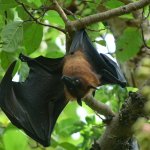Alexander Lukashenko, the longest-serving leader in the former Soviet Union, will seek re-election as president of Belarus on August 9 for the sixth time since 1994.
But amid the coronavirus pandemic, hundreds of thousands of Belarusians have attended rallies to show their support for Lukashenko’s opponents – including Svetlana Tikhanovskaya, the wife of one candidate arrested and barred from standing.
Lukashenko has faced opposition before. In 2006 and 2010 Belarusian citizens attempted to call for democratic reforms, but presidential candidates ended up in prison or exile. Protests calling for political changes are now taking place at an unprecedented scale – and are being brutally suppressed.
Lukashenko was once popular and seen as charismatic. But he has become increasingly authoritarian during his 26-year tenure and now faces strong public resistance.
Coronavirus hits public trust
As of August 3, Belarus had registered 68,067 coronavirus cases and 567 deaths. It is one of the few European countries (along with Sweden) that has not introduced lockdown and strict coronavirus containment measures. Lukashenko has downplayed the risks of COVID-19 in an effort to keep the economy going.
Inadequate response to the pandemic coupled with economic decline have undermined public trust in the political leadership. In the absence of an effective government response, Belarusians had to protect themselves. Some businesses shifted to home working and volunteers have provided personal protective equipment to medical workers. Despite the World Bank forecasting a “severe shock” to the Belarusian economy and high risk to public health, the election has not been postponed.
Candidates out, one by one
Until a few months ago, it seemed Lukashenko would face three main challengers in the presidential race: Viktor Babaryko, Sergey Tikhanovsky and Valery Tsepkalo. But now none of them will be on the ballot.
Babaryko, the former head of Belgazprombank, the local unit of Russia’s Gazprombank, was considered the strongest opponent. He collected over 400,000 ballot access signatures during his campaign, exceeding the necessary minimum of 100,000. But on June 18, Babaryko and his son Eduard were arrested, accused of financial crimes and tax evasion.
Tikhanovsky, a blogger who runs the YouTube channel Country for Life, was also considered a strong opponent. Tikhanovsky had labelled Lukashenko a “cockroach”, calling on Belarusians to “stop the cockroach”.
In May, Tikhanovsky was detained and charged for an unsanctioned public gathering and violating public order. Rights group Amnesty International recognises both Babaryko and Tikhanovsky as prisoners of conscience.
The third main candidate, Tsepkalo, served as the Belarusian ambassador to the US, founded the country’s own tech park modelled on Silicon Valley and once advised Lukashenko on science and technology. But at the end of June, Tsepkalo had 100,000 signatures of support invalidated, which blocked him from continuing in the presidential race.
A new challenger
On July 14, Babaryko and Tikhanovsky were both barred from running in the election by the Belarus Central Election Commission (CEC). The following day queues of people lined up at the CEC to file complaints about the decision.
The arrests of Babaryko and Tikhanovsky and refusal of their registrations triggered protests in the capital, Minsk, and major cities in which hundreds were arrested.
Lukashenko’s rivals subsequently united their campaigns behind Svetlana Tikhanovskaya, the wife of Sergey Tikhanovsky. She has unexpectedly become a revolutionary figurehead and her recent campaign rally on July 30 in Minsk gathered over 60,000 supporters.
Still, Belarus is a tough political environment for women. In May, Lukashenko said the nation’s constitution was “not made for a woman” as president, and that “our society has not matured to vote for a woman”. Politically active women and women partners of political activists are often attacked, including via messages containing threats of sexual violence or threats that their children will be taken into state custody.
Outmoded tactics for a young generation
Lukashenko’s opponents have been using Facebook, YouTube, Twitter and Viber messenger to get their message out rather than heavily censored traditional state TV and newspapers.
Lukashenko used to be able to rely on propaganda tools based on the memory of the second world war, hunger and devastation, and the need to maintain stability. But these are no longer cutting through to young Belarusians – especially those who were born after he came to power. Many are now demanding democratic changes.
Following mass opposition rallies in June, Lukashenko openly warned at a meeting with the chief of the Belarusian KGB that there will be no “Maidan” – in a reference to Ukraine’s 2013-14 revolution.
Whatever the outcome of the election, which he may try to rig, it’s clear his rule is weakening. The pandemic has left the man who has been called Europe’s “last dictator” dangerously exposed to public discontent and public mistrust.
Saltanat Janenova is affiliated with the Graduate School of Public Policy, Nazarbayev University (Kazakhstan).










